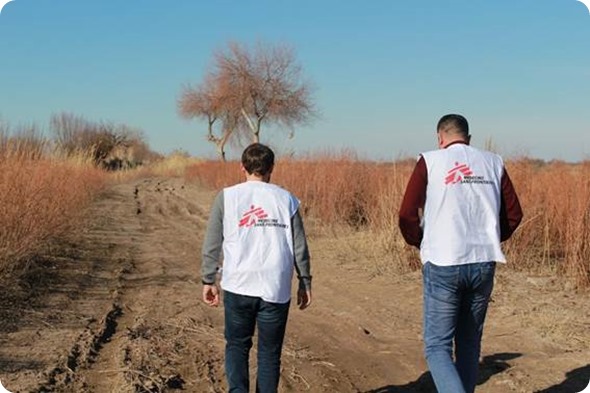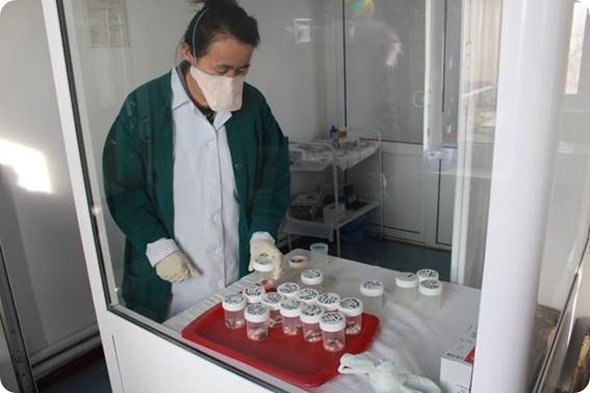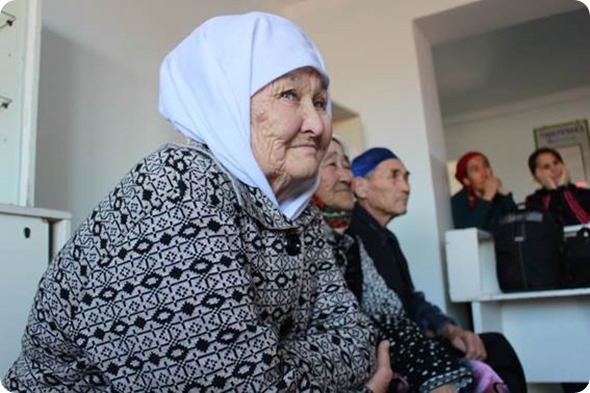The O’Neill report is a wide ranging report recognizing anti-microbial resistance (AMR) as a global problem with major public health and economic significance.
It discusses and suggests interventions in a number of key areas of concern in relation to the fight against drug resistance diseases. It highlights 10 areas to work on and seven of these are directly linked to preventing further resistance and decreasing the use of current antibiotics available.
They include looking at the role of vaccines to decrease the amount of antibiotics currently used, limiting the use of antibiotics in animals and infection control as well as how to prevent the development of future drug resistant infections.
The other sections of the report look at the current market and how it is failing, in particular how the system for Researching & Developing drugs promotes the overuse of antibiotics and fails to incentivize innovation for new drugs, vaccines and diagnostics tools for drug resistant infections.

Project in Uzbekistan where MSF staff are caring for patients with Drug Resistant Tuberculosis. Credit: Alpamis Babaniyazov
What are your thoughts on the O’Neill report?
MSF welcomes the report’s high level commitment from the UK government on the issue of drug resistance.
It’s helpful that the report takes a broad view of the challenges the world is up against with antibiotic resistance. It considers non-human use, infection control, surveillance, vaccines, diagnostics, and importantly how to finance and incentivize research and development into the new tools that are going to be needed to reverse the increasing trends of microbial resistance.
There are strong guiding principles mentioned in the report and it is important that they are maintained in any implementation of suggested solutions. However, patient’s needs must be at the core of implementation and any tools, whether drugs or vaccines, developed to combat AMR must truly answer the needs of all people affected by AMR.

MSF nurse prepares patients’ daily doses of drugs in Uzbekistan. Credit: Alpamis Babaniyazov.
How does the report relate to the work of Médecins Sans Frontières/ Doctors Without Borders (MSF)?
MSF witnesses first-hand the emergence of antibiotic resistance in a wide range of the contexts we work in. For example, in our child nutritional centers in Niger, in our burn care units in Iraq and in adult trauma centers in Syria.
MSF has documented the presence of very resistant bacteria, including ESBL, CRE and MRSA in our projects. In recent years we have started using polymyxin, which is considered to be the last line of antibiotics for multi-drug resistant gram negative infections.
We are pleased to see the inclusion of TB in the report as a key part of the response to AMR as we see increasing numbers drug resistant forms of TB which have long, toxic treatments with very poor outcomes. Shockingly, we see 50% success rates for Multi Drug Resistant TB and only 25% for Extra Drug Resistant TB).
There are also a number of challenges that hamper our response to AMR. Firstly, there is a tremendous gap in our knowledge of the extent and burden of antibiotic resistance amongst our patients. This is largely because of the lack of diagnostic tools available that we can use in the contexts where we work.

Support group health education session in Uzbekistan. Credit: Alpamis Babaniyazov
Secondly, we are struggling to get affordable access to key vaccines which have been shown to reduce the need for antibiotics, such as the pneumonia vaccine (PCV). It has been estimated that universal PCV coverage would avert up to 11.4 million days of antibiotics use for pneumonia in children under 5 years per year and a 47% reduction in days on antibiotics. The pneumococcal vaccine alone accounts for about 45% of the total cost to vaccinate a child today in the poorest countries.
Finally, due to the siloed development of the first two new TB drugs in over 50 years, they have not resulted in any change in the long and toxic treatment regimens that we have to use. Moreover only 2% of those who are eligible for them have so far had access to them in the 4 years since they have been registered.
This is obviously unacceptable and underlines the need to ensure that access must be considered from the beginning of the Research and Development (R&D) process and not left as an issue to be dealt with once the product is developed and on the market.
What changes do you think need to be made to the pharmaceutical industry’s system for researching and developing medicines?
The current pharmaceutical industry’s R&D model is driven by commercial imperatives: pharmaceutical companies develop drugs based on the likely return that a product will offer, through high prices and sales.
New antibiotics, as outlined in the O’Neill report, do not represent a profitable return on investment due to the need to rationally use any new products. For commercial reasons companies choose to invest in other more profitable areas where they are able to promote and sell the new product during the granted monopoly (patent) period on the market.
What needs to happen for AMR, and other diseases that do not represent a commercial market for developers, is the “de-linking” of the financing of R&D from the price and sales of the end product. This would be in contrast to the current innovation system where the R&D funding is linked to price and sales.
MSF, with others, has been working on a ‘de-linkage’ model of incentivizing R&D with regards to TB regimen development. The 3P project, mentioned in the O’Neill report, is a new and innovative model of financing, incentivizing and organizing TB drug development, with a public health driven response that promotes new research and innovation, breaks down the current siloed R&D approach and rewards innovators for investing in TB, while enshrining the right to health with availability, accessibility, acceptability and quality of end product at its core.
How important do you think governments and the WHO should be in setting priorities and making decisions about research and development?
AMR is a global problem affecting all countries in the world. The question of who sets the priorities for future antibiotics R&D is vital to ensure that patient’s needs are at the core and that any tools developed to combat AM, including drugs, vaccines and diagnostic tools, are truly answering the needs of all the country contexts and people affected by AMR.
WHO is an international organization that represents all countries and is therefore the best placed actor to ensure that all countries health needs are reflected in the target product profiles (TPP) which should be used to guide development of new products.
What needs to be done to make sure the needs of developing countries and vulnerable people aren’t left behind?
By placing WHO centrally and ensuring that the developed TPPs are guiding future R&D these countries and populations are able to feed into the process of priority setting.
Governments need to continue to priorities AMR as a public health issue so that they are able to contribute to the various global discussions, including of the O’Neill report, on AMR.
How high on the world’s political agenda do you think defeating drug resistance needs to be put?
As the O’Neill report highlighted there are considerable economic consequences of not addressing AMR now. However, it is also important to consider the human cost of AMR.
We are already seeing this human impact in our DRTB programs in Commonwealth of Independent States (FSU) where patients are dying from a disease that should be curable and in our surgical programs where we have run out of antibiotics that work.
There are a number of high level processes on-going at the minute (WHO AMR GAP, UN HLM on AMR, UN SG HLP on access to medicine) which the O’Neill report needs to work in conjunction with to ensure that the issue remains high on the political agenda and more importantly working towards sustainable solutions.
When will we begin seeing infections that cannot be treated by all available antibiotics and what impact will this have?
We are already seeing it now. We have TB projects in India that are dealing with drug resistance TB cases that we are unable to treat and are only able to offer palliative care.
The result is that people die and this has a significant negative impact on their family, community and treatment providers, beyond the economic impact outlined in the report.
What do you think the future holds for drug-resistant infections?
I think that the future for drug-resistant infections is full of hope with an opportunity to show that innovative models to fund R&D, like the 3P project, can reverse the trends of lack of investment in drug resistant infections and develop products that answer the public health requirements, have the needs of the patients at their core and provide a product that is available and affordable to everyone. The current situation cannot continue and reports like the O’Neill report show that out of the box thinking is required.
Where can readers find more information?
About Dr Grania Brigden
Grania Brigden, MBChB, MRCP is the TB Advisor for Médecins Sans Frontières/Doctors Without Borders' (MSF) Access Campaign. The MSF Access Campaign pushes for access to, and the development of life-saving and life prolonging medicines, diagnostic tests and vaccines for patients in MSF programs and beyond.
The Access campaign is working towards improving the diagnosis and management of TB in HIV co-infection, increasing access to medicines for pediatric TB care and increasing access to effective medicines and diagnostics to improve drug-resistant TB management. She has been based in Geneva, Switzerland since 2011.
She studied medicine at the University of Aberdeen, Scotland. She has worked as an NHS respiratory doctor/pulmonologist in London, specializing in TB and continues to have a honorary consultant position at the Royal Free Hospital, Hampstead, London.
In 2007-8 she worked in Uganda with VSO (Voluntary Services Overseas), helping to set up a TB diagnostic and treatment service in a slum area of Kampala.
She is a member of the steering committee of the Sentinel Project on Pediatric Drug-Resistant TB and RESIST TB. She is committed to improving TB treatment by increasing access to reliable diagnostics and quality treatment.